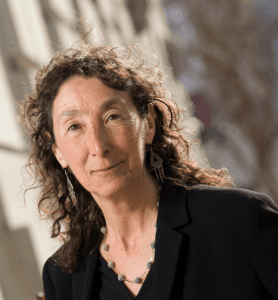Prof. Karen Musalo Briefs Congressional Staff on Canadian Asylum Ruling
Prof. Karen Musalo testified Tuesday at a virtual public briefing open to congressional staff and others about the impact of the recent Canadian Federal Court ruling that the United States is not a safe country for people seeking asylum.
The court determined that the longstanding “Safe Third Country Agreement” between the U.S. and Canada—which requires asylum seekers to request protection in the first country they arrive in, and is premised on the notion that both countries are “safe” for asylum seekers—violates the Canadian Charter of Rights and Freedoms and is inconsistent with international refugee law. The court cited the conditions asylum seekers said they had faced while in U.S. detention, including lack of access to adequate health care or legal counsel.
Musalo, Director of the Center for Gender and Refugee Studies (CGRS), supported the Canadian asylum advocates and offered expert testimony in the case. At the time of the decision, in July, she told the New York Times that the decision was an “indictment of the inhumanity of the American detention system for asylum seekers.”
Speaking Tuesday, she noted that the Trump administration has “all but eliminated the promise of protection” for women and girls fleeing gender-based violence. She explained how the law has developed and how the Trump administration has worked to roll back hard-won progress for women refugees achieved by CGRS and other advocates over decades.
Rep. Joaquin Castro (D-TX), Chairman of the Congressional Hispanic Caucus and Vice Chairman of the House Foreign Affairs Committee, presented opening remarks. Castro has been a champion for immigrant rights and has steadfastly defended the right to seek asylum, leading multiple congressional inquiries related to detention practices and access to protection. He is a co-sponsor of the Refugee Protection Act of 2019.
Advocates from Human Rights First, Refugees International, the Refugee Law Office in Toronto, Amnesty International Canada, and Amnesty International USA also spoke.

Prof. Karen Musalo
Musalo explained that there has been “steady progress in U.S. law to the recognition that women who suffer gender persecution meet the refugee definition.”
Musalo founded CGRS in 1999 after winning asylum for a Togolese woman fleeing female genital cutting in the groundbreaking asylum case Matter of Kasinga. In the 21 years since, the center has played a role in every major precedent-setting victory in the area of gender-based asylum. In 2014, CGRS’s intervention as consultants and amicus in the case Matter of A-R-C-G- helped secure the first published, binding decision recognizing domestic violence as a basis for asylum.
The Trump administration’s sustained assault on the U.S. asylum system has threatened these gains, with former Attorney General Jeff Sessions’ 2018 decision in the domestic violence case Matter of A-B-—in which Musalo and CGRS are counsel—leading to a sharp downturn in grant rates in Central American asylum cases. Though CGRS in its strategic litigation efforts has severely blunted the impact of Sessions’ ruling—winning a series of promising victories at the Ninth Circuit just last month—the Trump administration is now seeking to codify Matter of A-B- and other restrictive policies in binding regulations.
In June, the administration proposed regulations that, if finalized, would unequivocally foreclose protection for women fleeing gender persecution, Musalo testified. “These proposed regulations touch upon every aspect of asylum law, and attempt to rewrite the Refugee Act and 40 years of case law interpreting it—with the objective of making it impossible not only for women—but for anyone fleeing persecution and torture—from obtaining protection,” she said. “The future of asylum in the United States rests entirely on resistance to these policies.”
“I am grateful to our colleagues in Canada for holding their own government to account, and I thank you, Rep. Castro, for your leadership in co-sponsoring the Refugee Protection Act and in speaking out for the rights of asylum seekers,” Musalo said. “I hope we can all work together to restore protection and ensure that our refugee system is consistent with our ideals and international obligations.”
Read Musalo’s full remarks and listen to a KQED interview with Musalo about the case. Read the full Canadian court decision.